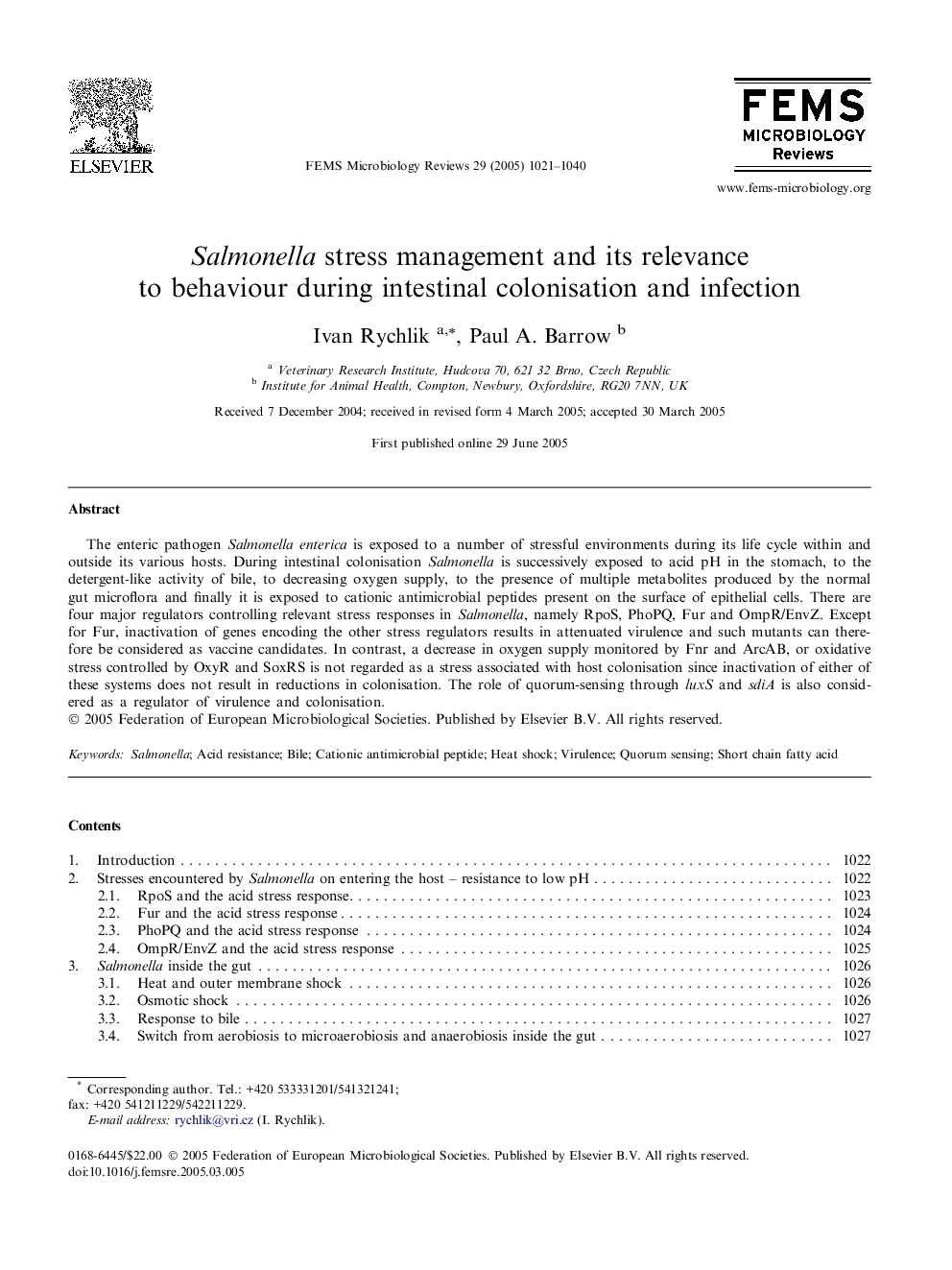| Article ID | Journal | Published Year | Pages | File Type |
|---|---|---|---|---|
| 9278657 | FEMS Microbiology Reviews | 2005 | 20 Pages |
Abstract
The enteric pathogen Salmonella enterica is exposed to a number of stressful environments during its life cycle within and outside its various hosts. During intestinal colonisation Salmonella is successively exposed to acid pH in the stomach, to the detergent-like activity of bile, to decreasing oxygen supply, to the presence of multiple metabolites produced by the normal gut microflora and finally it is exposed to cationic antimicrobial peptides present on the surface of epithelial cells. There are four major regulators controlling relevant stress responses in Salmonella, namely RpoS, PhoPQ, Fur and OmpR/EnvZ. Except for Fur, inactivation of genes encoding the other stress regulators results in attenuated virulence and such mutants can therefore be considered as vaccine candidates. In contrast, a decrease in oxygen supply monitored by Fnr and ArcAB, or oxidative stress controlled by OxyR and SoxRS is not regarded as a stress associated with host colonisation since inactivation of either of these systems does not result in reductions in colonisation. The role of quorum-sensing through luxS and sdiA is also considered as a regulator of virulence and colonisation.
Keywords
Related Topics
Life Sciences
Immunology and Microbiology
Applied Microbiology and Biotechnology
Authors
Ivan Rychlik, Paul A. Barrow,
